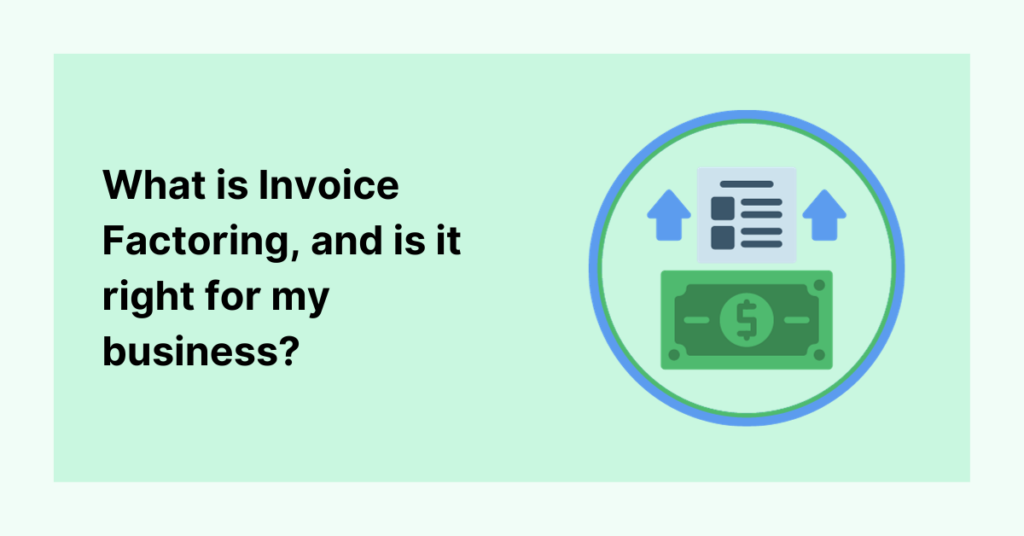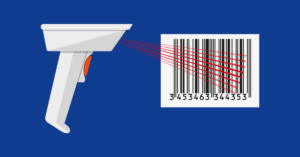Managing cash flow can be a constant challenge for a small business owner. You might be in a financial bind while juggling expenses and waiting for clients to pay their invoices. This is where invoice factoring can come to your rescue. In this guide, we will explore the world of invoice factoring, shedding light on what it is, how it works, and the numerous advantages it offers to small business owners.
What is Invoice Factoring?
Invoice factoring, or accounts receivable factoring, is a process that allows businesses to convert their unpaid invoices into immediate cash. Instead of waiting for clients to settle their bills, you can sell your outstanding invoices to a third-party company (factoring company or factor).
Accounts receivable factoring allows businesses to receive immediate cash rather than waiting for clients to pay their invoices. The factor is then responsible for collecting payments from the clients. In return, the factoring company advances you a significant portion of the invoice’s total value, typically around 80% to 95%. Once the customer pays the invoice, the remaining balance is remitted to the business, minus any fees the factoring company charges. For example, you have clients owing you $25,000 in outstanding invoices. The factoring company may advance you $20,000 before your customer pays. The remaining balance of $ 5,000, minus factoring fees, is paid after your client pays for the outstanding invoice.
Related: How Your Company Can Solve Your Accounting Problems
When Is Invoice Factoring right for business?
Invoice factoring can be a beneficial financing option for many businesses, but it’s essential to determine whether it’s the right fit for your specific needs and circumstances. Here are some factors to consider when evaluating whether it is suitable for your business:
- Cash Flow Constraints: Factoring can inject immediate liquidity into your operations if your business struggles with cash flow hitch due to delayed invoice payments.
- Rapid Growth Phase: Businesses expanding quickly may find their capital tied up in inventory or other investments. Factoring can provide the necessary funds to support this growth.
- Limited Access to Traditional Financing: Traditional bank loans might be out of reach for newer businesses with a shorter credit history. Factoring companies generally prioritize the creditworthiness of your clients over your business’s financial history.
- Time and Resources: Managing accounts receivable can be time-consuming. Transferring this responsibility to a factoring company can free up resources.
- Predictable Cash Flow: If predictability in cash flow is crucial for your operations, such as meeting payroll or seasonal demands, accounts receivable factoring can stabilize the income stream.
When Might Invoice Factoring Be Less Ideal?
- Short invoicing cycle: If your business primarily deals with consumers or has a very short invoicing cycle, there may be better options than invoice factoring.
- Cash flow needs: If your cash flow is consistently strong, and you don’t face delays in receiving customer payments, you may not require accounts receivable factoring.
- Poor creditworthiness of customers: If your customers have a poor payment track record or frequently dispute invoices, securing factoring arrangements might be more challenging.
- Low invoice volume: If your business only issues occasional invoices, factoring fees outweigh the benefits.
- Cost Considerations: If the cost of factoring significantly impacts your profit margins, you should explore other financing options
- Business Goals: If you have other financing needs, such as funding a large expansion or making a significant capital investment, alternative financing options may be more appropriate.
Key considerations before opting for accounts receivable factoring
- Evaluate Costs: Understand all fees associated with factoring and weigh them against the benefits.
- Contract Terms: Ensure no restrictive clauses might impede your business’s flexibility.
- Factor’s Reputation: Research the reputation of the factoring company. Their interactions with your clients will reflect on your business.
- Volume and Duration: Some factors require long-term contracts or a minimum invoice volume. Ensure this aligns with your business’s needs.
Tips for successful invoice funding
To make the most of invoice factoring, consider these tips:
- Maintain Clear Records: Keep accurate records of your invoices and payments to streamline the factoring process. You can use business accounting templates or bookkeeping software to keep proper records.
- Choose Invoices Wisely: Choose invoices with reliable clients with a history of paying on time.
- Negotiate Terms: Negotiate favorable terms with the factoring company, including rates and contract lengths.
- Plan for Growth: Use factoring strategically to support business growth and expansion.
- Maintain Good Customer Relationships: Ensure your clients know the factoring arrangement to maintain trust.
Invoice factoring can be a boon for many businesses, but it’s not a one-size-fits-all solution. Evaluating your specific needs, the costs involved, and the potential impacts on customer relationships are crucial. If the pros outweigh the cons and it fits seamlessly into your business model, accounts receivable factoring is the right choice to fuel your business growth and stability. By choosing the right factoring company and following best practices, you can unlock the benefits of this financing option and propel your business forward.








